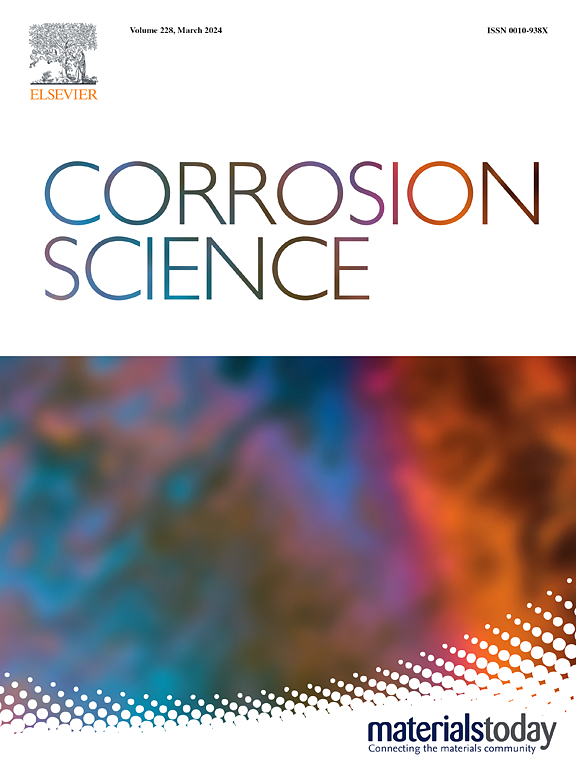Unmasking the influence of TiC on passivation and pitting initiation of aluminum matrix composites
IF 7.4
1区 材料科学
Q1 MATERIALS SCIENCE, MULTIDISCIPLINARY
引用次数: 0
Abstract
The effect of TiC on corrosion process, particularly the passive and initial stages, is unclear. The passivation and initial corrosion of 2024-TiC AMCs are investigated in this report. It is found that a small amount of TiC improves corrosion resistance by reducing galvanic corrosion current density and forming a stable passive layer with low Cl⁻ adsorption and cation vacancy density, minimizing dissolution. However, excessive TiC causes uneven distribution, aggregation of Cl⁻, and passive film rupture, leading to anode aluminum dissolution and accelerated pitting corrosion propagation. These findings highlight the balance requirement for optimal TiC additive used in enhancing corrosion resistance.
TiC 对腐蚀过程(尤其是被动腐蚀和初始腐蚀阶段)的影响尚不明确。本报告研究了 2024-TiC AMC 的钝化和初始腐蚀。研究发现,少量的 TiC 可降低电化学腐蚀电流密度,形成具有低 Cl- 吸附和阳离子空位密度的稳定被动层,最大限度地减少溶解,从而提高耐腐蚀性能。然而,过量的 TiC 会导致分布不均、Cl- 聚集和被动膜破裂,从而导致阳极铝溶解和点蚀加速扩展。这些发现凸显了用于增强耐腐蚀性的最佳 TiC 添加剂的平衡要求。
本文章由计算机程序翻译,如有差异,请以英文原文为准。
求助全文
约1分钟内获得全文
求助全文
来源期刊

Corrosion Science
工程技术-材料科学:综合
CiteScore
13.60
自引率
18.10%
发文量
763
审稿时长
46 days
期刊介绍:
Corrosion occurrence and its practical control encompass a vast array of scientific knowledge. Corrosion Science endeavors to serve as the conduit for the exchange of ideas, developments, and research across all facets of this field, encompassing both metallic and non-metallic corrosion. The scope of this international journal is broad and inclusive. Published papers span from highly theoretical inquiries to essentially practical applications, covering diverse areas such as high-temperature oxidation, passivity, anodic oxidation, biochemical corrosion, stress corrosion cracking, and corrosion control mechanisms and methodologies.
This journal publishes original papers and critical reviews across the spectrum of pure and applied corrosion, material degradation, and surface science and engineering. It serves as a crucial link connecting metallurgists, materials scientists, and researchers investigating corrosion and degradation phenomena. Join us in advancing knowledge and understanding in the vital field of corrosion science.
 求助内容:
求助内容: 应助结果提醒方式:
应助结果提醒方式:


